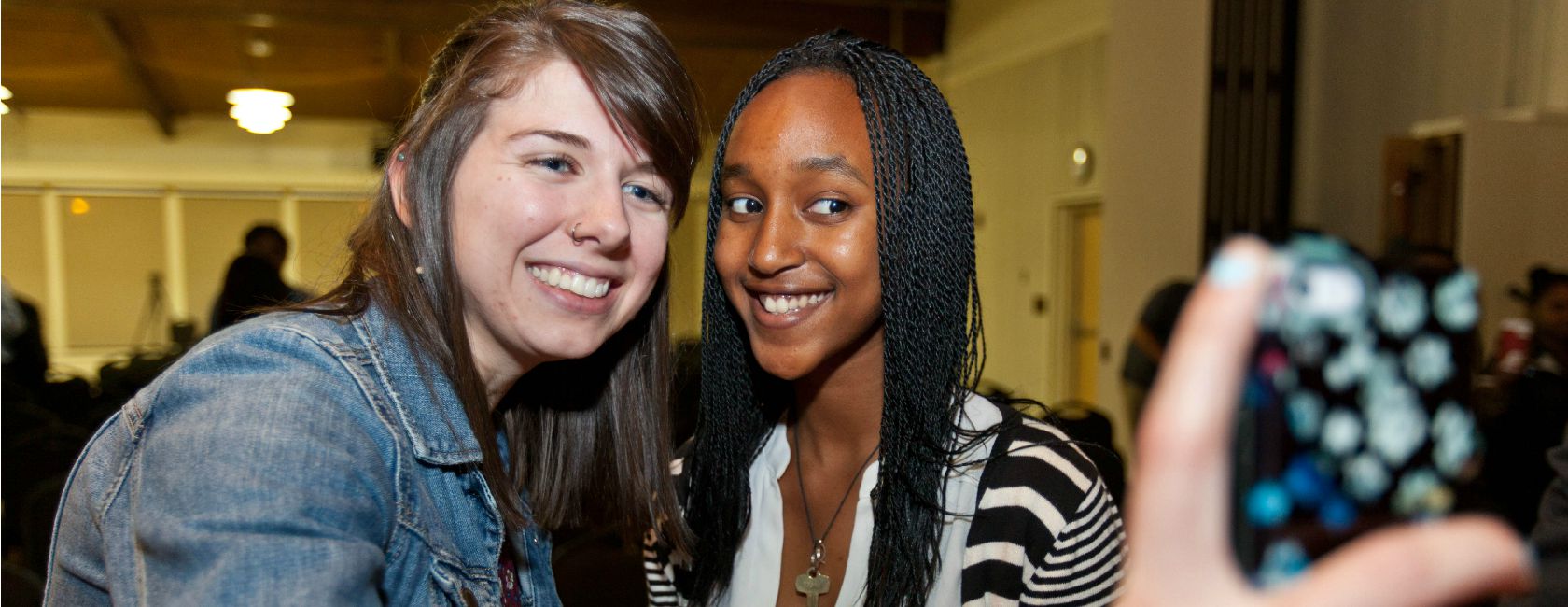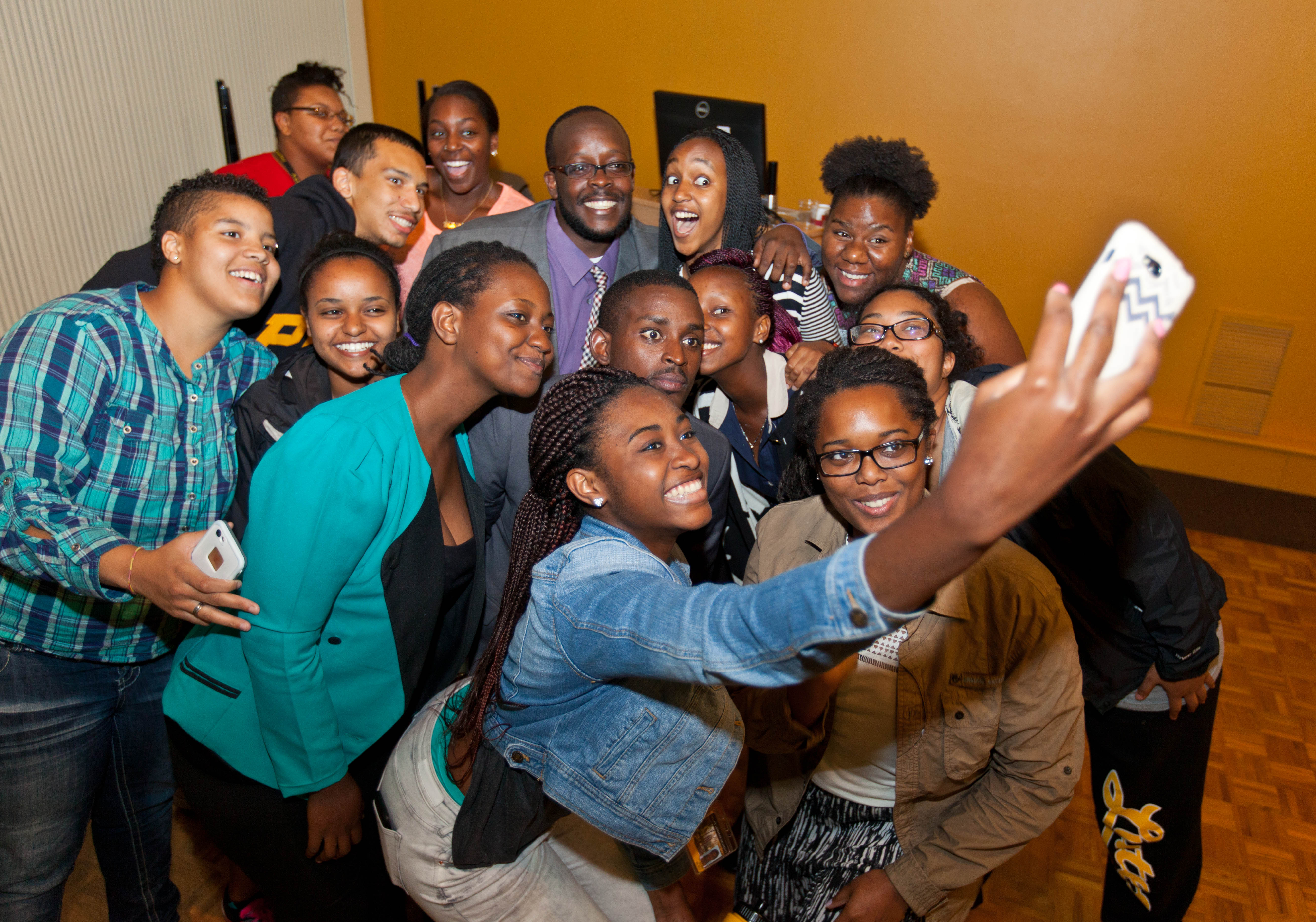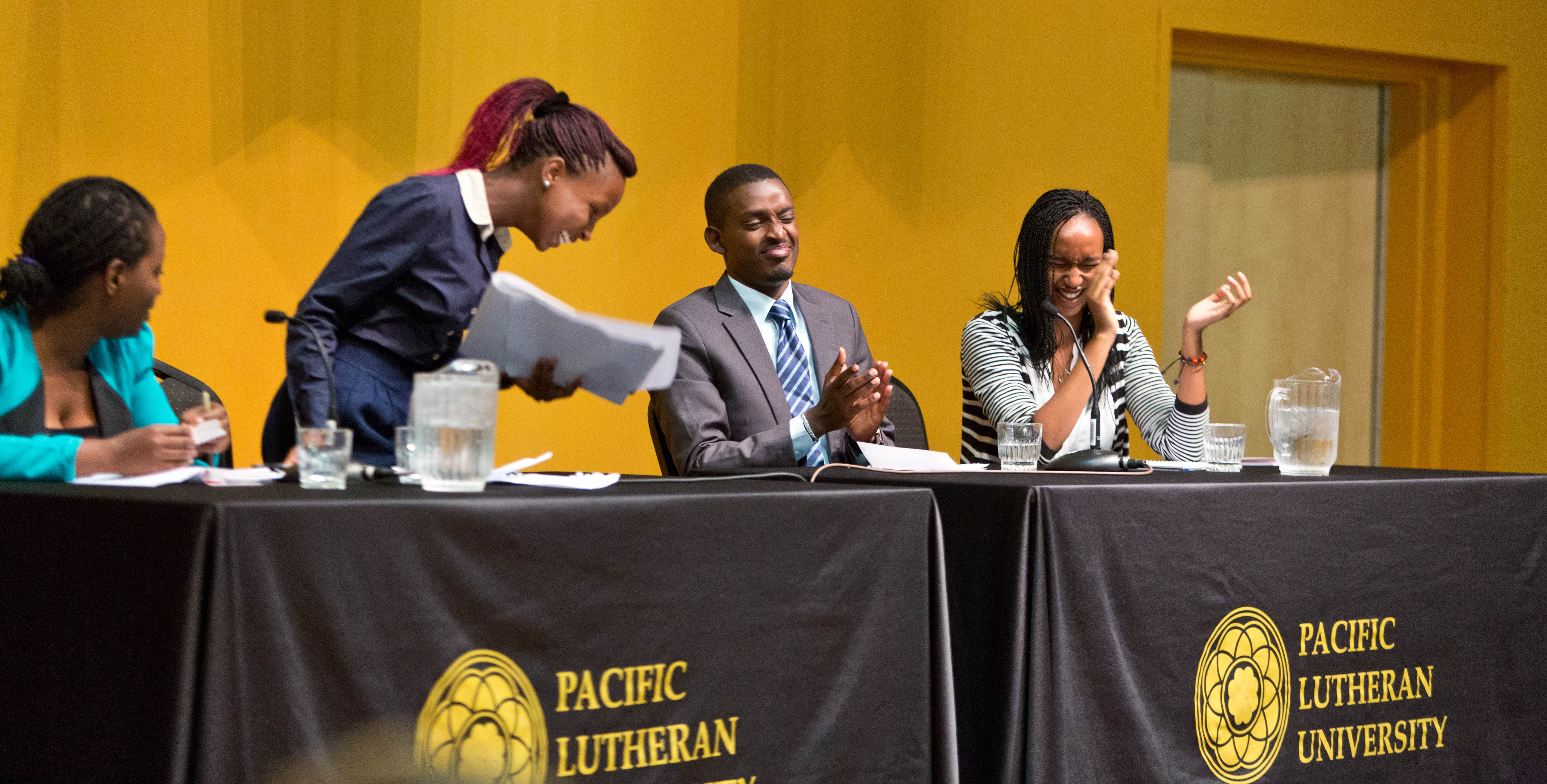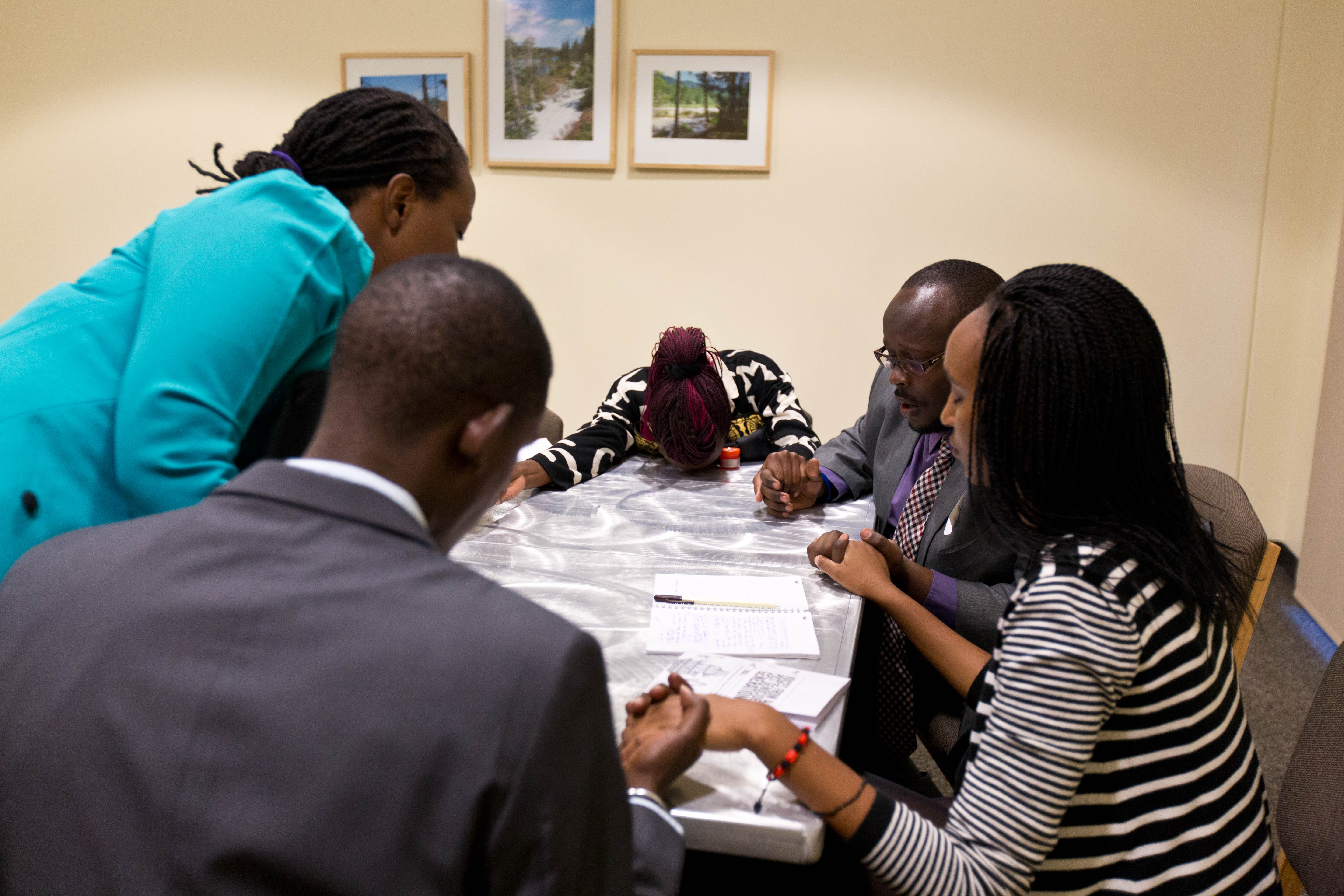Reflections on a Day With PLU’s Rwandan Guests

Image: Teresa Hackler ’16 takes a selfie with 16-year-old iDebate Rwanda member Maya Musenga. (Photo: John Froschauer/PLU)
By Teresa Hackler '16
Special to PLU Marketing & Communications
TACOMA, Wash. (Sept. 24, 2015)—On Sept. 21, I had the immense privilege of meeting and getting to know members of the iDebate Rwanda team. Although it is always an honor to spend time with international guests, their visit was of special importance to me as I prepare to leave for Kigali, Rwanda, in January.
As a student of History and Holocaust and Genocide Studies, I have long been fascinated by Rwanda’s past and culture, so the opportunity to hear firsthand the stories of Rwandans was one that I did not take lightly. After a rigorous application process, these four students won a competition through an NGO founded in 2012: iDebate Rwanda. Their victory enabled them to travel to colleges and universities across the United States showcasing their debate skills and sharing the history of their country. Through debate, the students foster the confidence needed to give them a voice as well as encourage others to use open dialogue as a problem-solving method.
It should come as no surprise that I believe I was far more nervous meeting the visitors than they were meeting me. Hoping to make a positive impression, I realized only after I began eating breakfast with them that my worries were totally unfounded. These guests, who had to present in front of an auditorium of strangers that evening in a continent many were visiting for the first time, exuded such calm and collected behavior that they made me feel instantly at ease. Outgoing and witty, each debater brought to the table his or her own sense of confidence that radiated through their personalities.
Perhaps this is part of the reason that I was completely baffled to learn that Maya and Clemence, the two youngest members of the team, were still in high school. Reflecting back on my own experience as a teenager, it became impossible for me to imagine myself standing in front of an international community demonstrating an ability to do much at all—let alone sharing my hopes and dreams with the crowd. Right from the start, it was clear that these were incredible young adults.
Listening to students very close to my age talk about growing up in a country that was already defined for them as “post-genocidal” was eye-opening for me. Even if some of the debaters never experienced the genocide personally, they explained the challenges that arise when the international community sees your home only as a place of tragedy. In turn, this made me reflect not only on my own views of Rwanda, but also on how we portray the United States to other countries.
Maya, with whom I sat at dinner, confided in me that the U.S. is totally different than the way the media had portrayed it to her. Instead of being a sanctuary, she recognized that the United States had more than its own share of problems. Herein lies the danger of hearing only one side of a story: The visitors made it clear that they do not want pity or money from the rest of the world; instead, they want the international community to get to know Rwanda’s whole history and culture.
There could perhaps be no better affirmation of my aspiration to study in Rwanda than that request. But it is not something that I can accomplish thoughtlessly. I believe, after meeting with the debaters, one of the most important things I can do when I get to Rwanda is to come in with an open mind. Even having read many books about the country, I will not truly know Rwanda until I begin to get to know more Rwandans. Only then can I add their stories to the narrative I only roughly comprehend so far.
Part of the reason I chose to pursue Holocaust and Genocide Studies is because I have come to recognize, through speakers like these, that the aftermath of genocide does not simply end when the killing stops. The coordinator of the trip, Jean Michel Habineza, mentioned several times: “To you the death of a million is a statistic, but to us it is an uncle you have never met.”
Emotion has a place in academic discourse, and learning to face their feelings through debate, these Rwandans have found a way to bring complex issues to the surface rather than burying them away. It seems inconceivable that many Rwandans became neighbors with their enemies after the genocide, but perhaps this is a lesson in forgiveness and reconciliation that is almost beyond our comprehension.
I believe we tend to have very black-and-white views of good and evil, which is part of the reason delving further into atrocities such as the 1994 genocide is so important. It is only when we connect with people in meaningful ways that we begin to see not only how flawed humans can sometimes be, but also the compassion and resilience that can develop because of it.
As a closing to our dinner, Jean Michel thanked PLU President Thomas W. Krise for allowing them to share their message and mission with PLU with a saying in Kinyarwanda that roughly translates as: “Bless the back that carried you, for without your mother you would not be the person you are today.”
It is my great joy to thank our own Rwandan visitors and the backs that carried them. For it is through stories such as these that we as students of PLU can continue to strive to be global citizens in this world.





